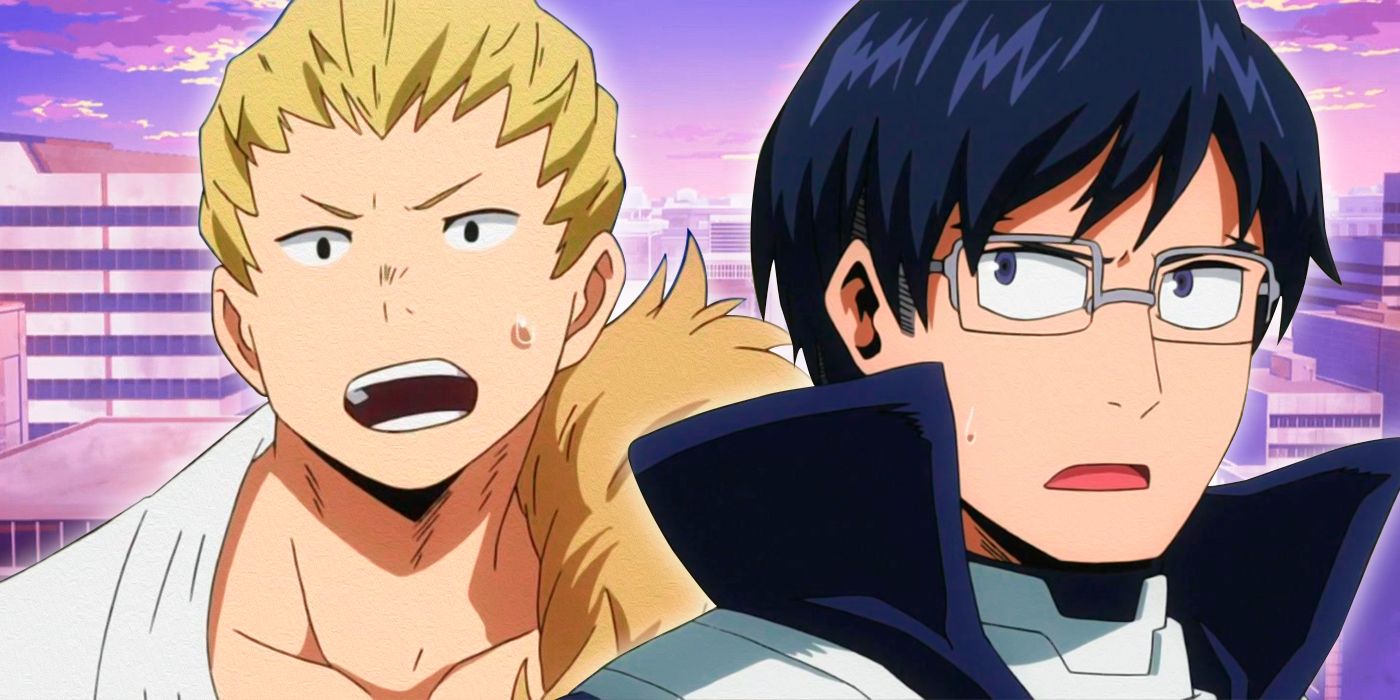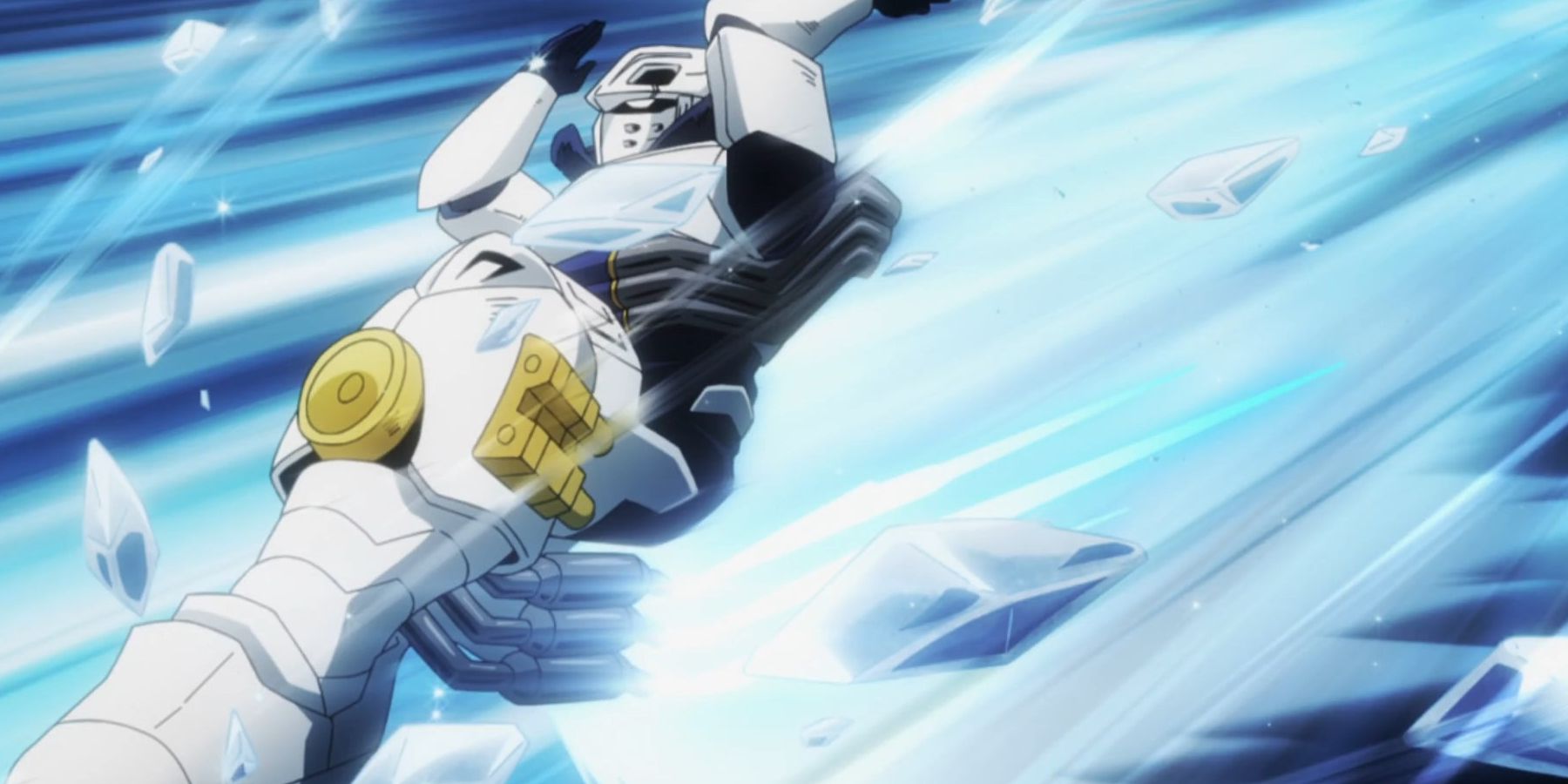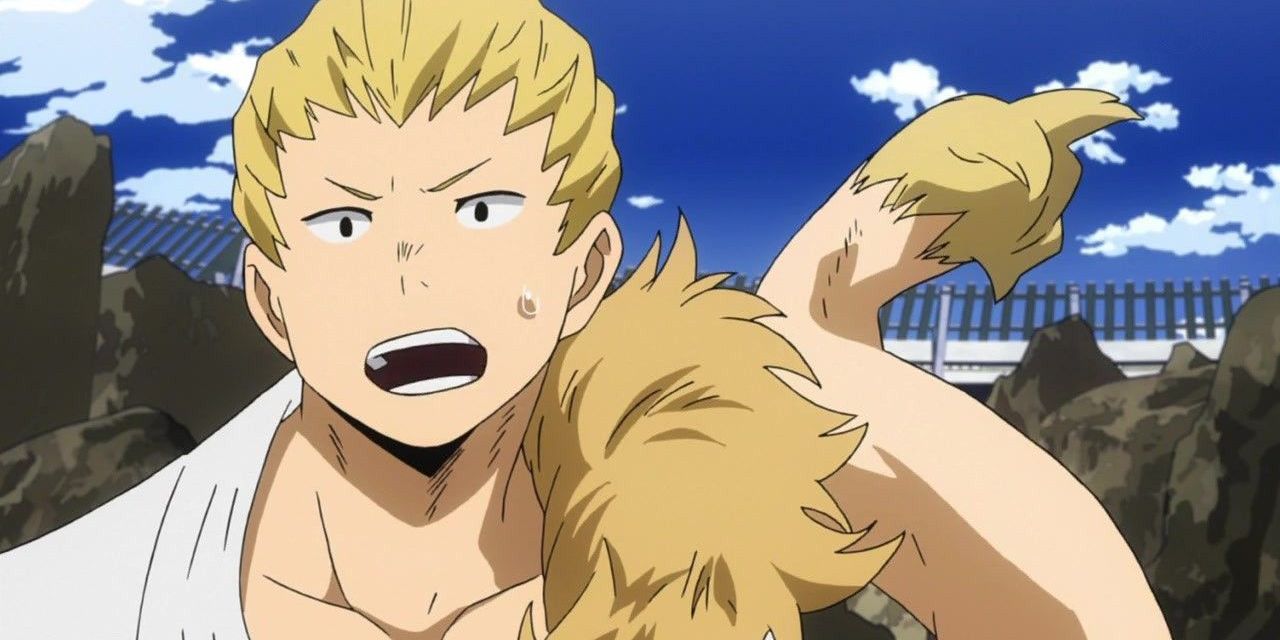
My Hero Academia depicts a future world dominated by Quirks, or supernatural meta abilities, which vary greatly in both nature and power. In-universe lore suggests that Quirks are becoming ever more powerful and diverse with each passing generation, and some fear that a Quirk singularity is around the corner. However, some Quirks may get left behind.
Some prodigy students and villains are living examples of how close to the singularity the human race has come, such as Shoto Todoroki and Fumikage Tokoyami, and none of these characters have melee-type Quirks. The game is shifting toward magic-style Quirks, and melee-types are only effective against each other. Soon, they might become irrelevant altogether.

Melee-type Quirks can generally be defined as those that enhance the wielder's natural physical abilities, but without emitting any powers or giving them abilities such as telekinesis or telepathy. Mashirao Ojiro's Quirk, Tail, is one such example, along with Kendo Rappa's Strongarm Quirk and Tenya Iida's Engine ability. Such Quirks are useful against low-level villains and criminals who don't have special Quirks, and these melee Quirks are also reasonably useful against wielders of other melee Quirks in battle, but these limitations are becoming more and more serious. In a battle, melee-type heroes may struggle to take down vulnerable enemies, since other foes with magical Quirks can block them or otherwise disrupt their plans. Kurogiri, for example, can force a melee hero to teleport away, or a character like Hitoshi Shinso can brainwash them and turn their strength against them.
There is also the matter of Fat Gum's Fat Absorption Quirk, which can absorb most materials and convert kinetic energy into his own strength, as well as the legendary One For All and Muscular's muscle enhancement Quirk. These are some of the best melee Quirks seen thus far, but even One For All is a stretch, since it's technically an energy storage Quirk and contains several non-melee Quirks, such as Blackwhip. Such Quirks cannot compete with Shoto's dual-element Quirk, Katsuki Bakugo's Explosion Quirk or Tomura Shigaraki's Decay; in fact, getting into melee range simply enables Decay.

Melee Quirks are further limited by their design, since they only enhance what already exists on the human body or add something simple and non-magical such as Mashirao Ojiro's trademark tail. Enhanced strength, speed and endurance are useful against some foes, but aside from that, there is little more design room for melee Quirks, while other Quirk types have all kinds of possibilities -- especially when two people with compatible Quirks have a child who inherits their best traits, such as Shoto, the child of a Quirk marriage. The concept of "I'm faster and stronger than normal" is already a dead end, while the youngest generation of children has an impressive variety of magical Quirk abilities that melee-types cannot match. Soon, being able to punch really hard won't mean much at all unless facing another melee type, and melee-type Quirks don't seem to blend well with magical types, even for Quirk marriage purposes. This makes them further obsolete.
In this sense, the Quirk world may soon be divided into melee and magical Quirk types, with the magical ones having far more potential -- and nearly all of the noteworthy Quirks are magical types. Because melee types only stand a chance against each other, when the strongest heroes and villains are fighting, they'll be using magical Quirks, while melee Quirks will have no place in the battle. One For All blurs the line somewhat with its energy storage and secondary Quirks, but it appears to be the lone exception.
Otherwise, it seems that the future of Quirks belongs to magical types, and fans are already wondering how Mashirao Ojiro got into class 1-A with such a simple melee-type Quirk. Plenty of magical students in class 1-B could have taken his place, such as Kinoko Komori. There's also the rabbit hero Mirko, who is a melee fighter but whose Rabbit Quirk doesn't just enhance her legs; it also grants her heightened senses and instincts like an actual rabbit, which is more magical than melee. Even she can't get away with just kicks and punches; she needs something more superhuman to keep up with the strongest villains.
0 Comments